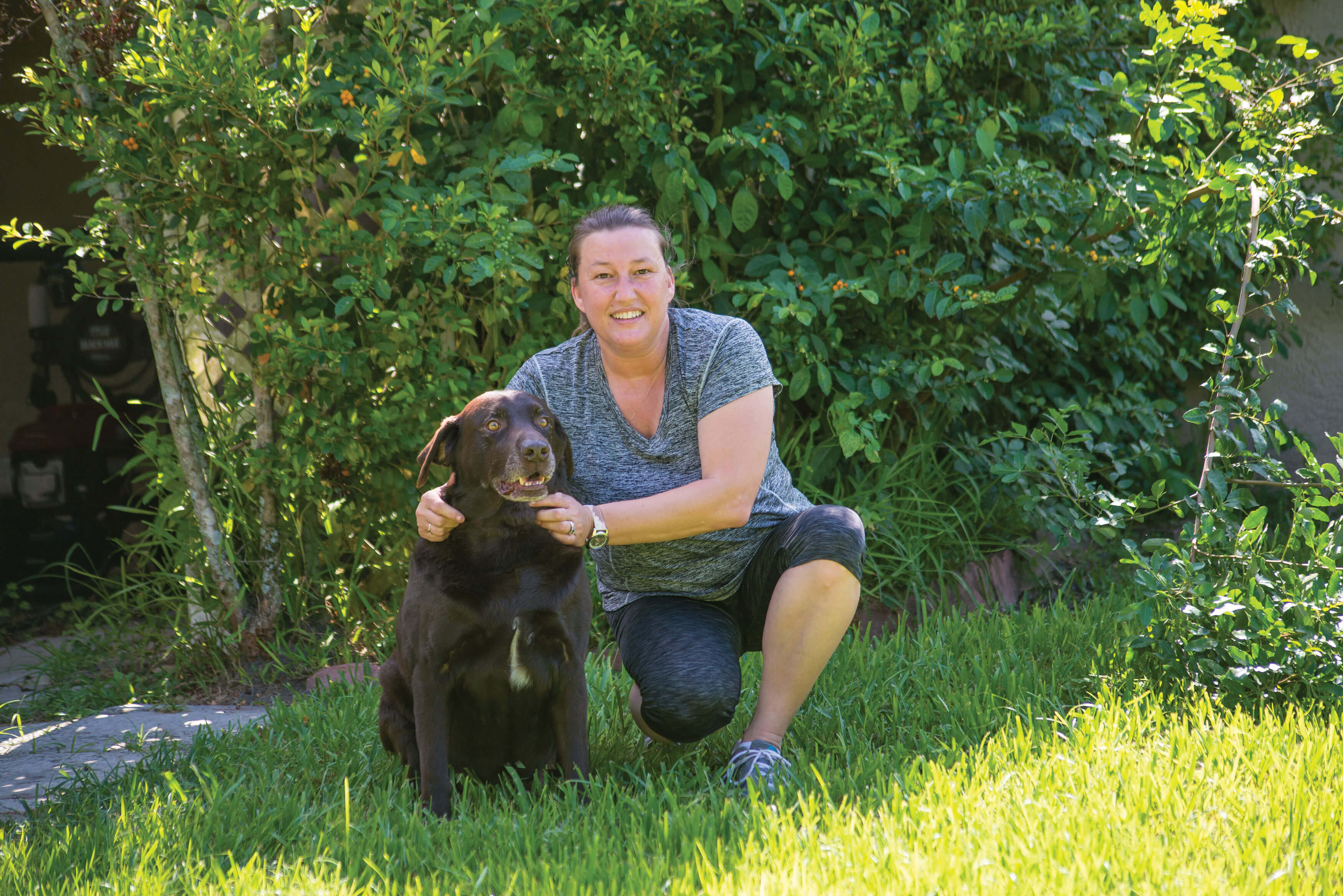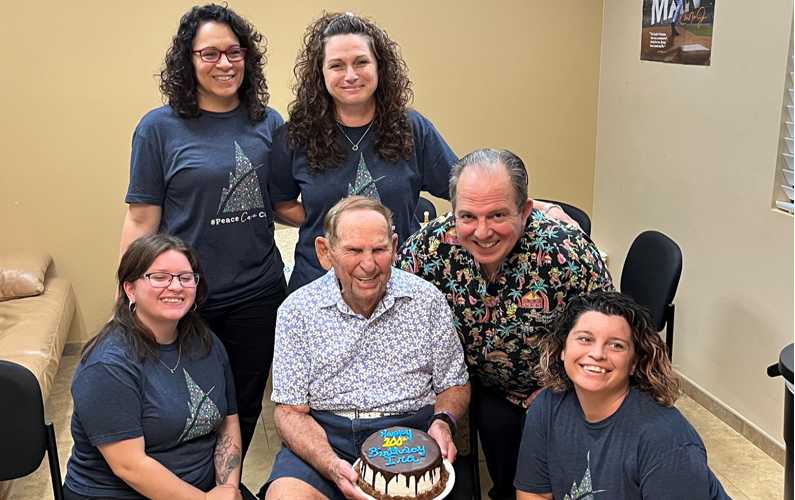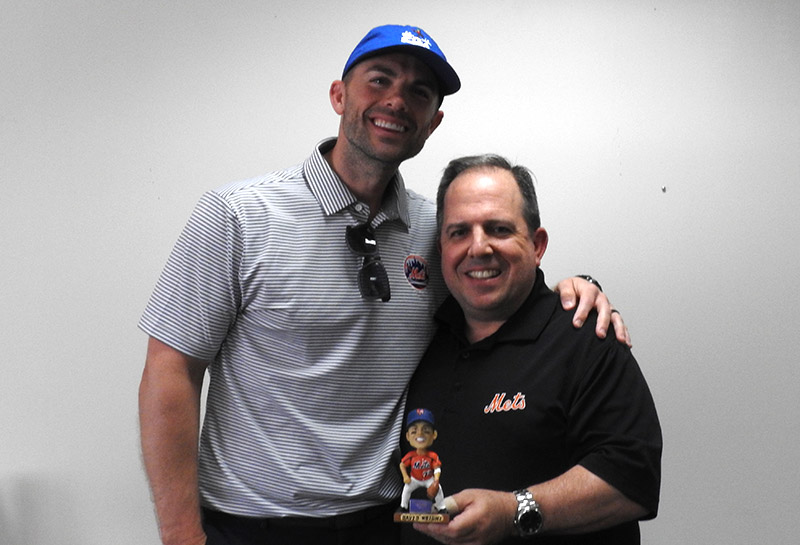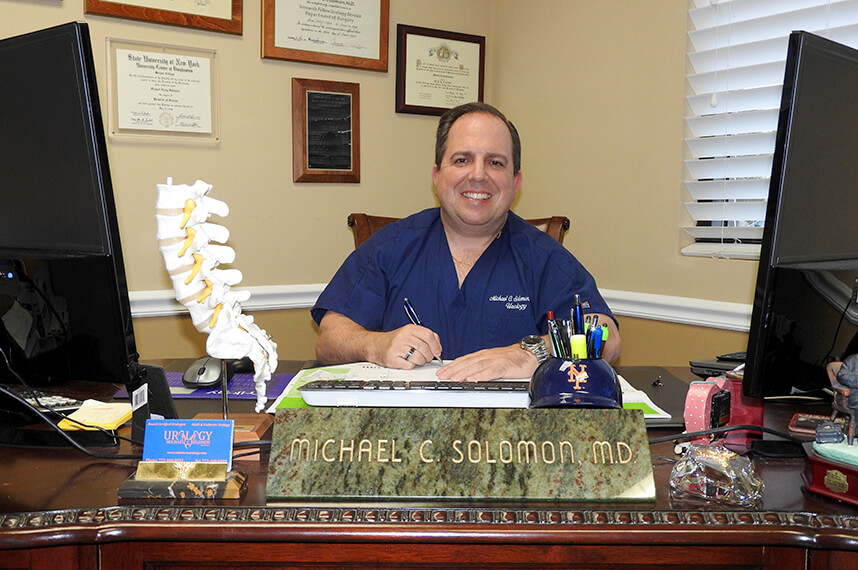Doing double duty at an alcohol rehabilitation facility, nurse Nancy Ford is constantly on the go. When she’s not in the back working with her clients, she’s up front serving as part of the utilization review process. All of that running around was becoming more of a problem for Nancy due to a distressing personal concern.
“I had urine leakage,” she shares, “and it wasn’t just leakage, it was big gushes. I couldn’t run. I couldn’t do stairs. I couldn’t go to the gym. I couldn’t do anything or I would leak all over.
“I was taking care of my grandmother. She has Parkinson’s disease and dementia. If she were to start to fall, I couldn’t go to catch her without having to change my clothes afterward.”
Nancy had urinary incontinence on steroids. Finally, she decided she’d lived with the aggravation and embarrassment long enough, so she reached out to urologist Michael C. Solomon, MD, FACS, in Port St. Lucie.
“Dr. Solomon was my grandmother’s urologist,” explains Nancy. “My husband was taking her over there because she doesn’t communicate very well. My husband recommended him to me.”
When she met Dr. Solomon herself, Nancy understood right away why her spouse had suggested him. She immediately felt at ease with the doctor, and that gave her added confidence in him as a provider.
“I thought he was very pleasant and personable,” she reports. “He never made me feel uncomfortable or intimidated.”
The urologist performed a complete physical exam and began a series of tests to rule out potential structural and medical causes for Nancy’s incontinence. She was amazed by the thoroughness of Dr. Solomon’s diagnostic process.
“He actually did a lot of procedures to test my bladder,” she relates. “They checked first of all for a prolapse. They also checked for a prolapsed uterus to make sure that wasn’t the cause. He did a procedure where he tested just for bladder cancer. Then the final procedure was the injection. He said it had a very high success rate.”
Nancy would find out how high soon enough.
A common concern
About half of all American women experience occasional bouts of urinary incontinence, and approximately 60 percent of those can be attributed to stress incontinence. Women experience urinary incontinence twice as often as men.
Stress urinary incontinence occurs when the muscles that support the bladder and urethra (the tube that carries urine from the bladder out of the body) weaken and allow urine to leak out of the bladder. It is more often seen in women because childbirth by vaginal delivery and estrogen deficiency after menopause are among its most common risk factors.
With stress incontinence, urine leaks when pressure (stress) is applied to the bladder, which can happen when coughing, laughing, running, walking or lifting, or during other physical activities. The muscles of the pelvic floor, particularly the sphincter muscle at the neck of the bladder, normally keep the bladder tightly closed until the person reaches a bathroom. Stress incontinence occurs due to diminished function of these muscles under pressure.
“Typically, you have a forty-five or fifty-year-old woman who has had three kids, and now she’s leaking a lot of urine and can’t do her everyday activities without smelling of urine or having to change her underwear or wear pads,” notes Dr. Solomon. “They’ve got to keep changing, so it’s a nuisance.
“Stress incontinence is common in women as they get older, because aging in general is also a risk factor.”
Women with stress incontinence often feel embarrassed by their situation, and many don’t seek a physician’s help. They also tend to isolate themselves or limit their work and social activities. Fortunately, treatments are available to either resolve or greatly improve the symptoms of this distressing condition.
Simple solution
Urinary incontinence can often be treated with medications. However, if symptoms persist or are too bothersome despite medical therapy, there are other avenues to take.
Dr. Solomon discussed treatment options with Nancy, which included an invasive surgery, called a bladder lift, in which the surgeon places a mesh “sling” to add more support at the neck of the bladder. He didn’t recommend this surgery for Nancy, much to her relief.
“It is an open procedure, and there are many complications associated with it,” describes Dr. Solomon. “Her decision was to go with a minimally invasive procedure, and I suggested a technique that has produced excellent results.”
Dr. Solomon treated Nancy’s stress incontinence with an innovative therapy involving a transurethral injection of a compound called Macroplastique®. The injections can be done quickly and safely in the doctor’s office without anesthesia, using only a numbing medication.
“This is a minimally invasive procedure that requires no cutting, no insertion of anything,” informs the doctor. “It is simply an injection right into the bladder neck.”
Uroplasty, Inc., makers of Macroplastique, describes the compound as a soft-tissue urethral bulking agent, made of a water-soluble gel and a rubber-like silicone elastomer material, that is not absorbed by the body. The silicone elastomer material causes a bulking effect after it has been injected. The increased bulk surrounds the urethra, helping it to close more effectively, thus preventing urine from leaking. Macroplastique was developed to treat women with stress urinary incontinence primarily due to functional weakness of the sphincter muscle.
Dr. Solomon stresses the simplicity and safety of the transurethral injection. “It is a five- to ten-minute procedure done in the office through a small telescope. There is no general anesthesia; the patient is awake for the entire procedure. Once it is over, the patient can drive home.”
Freedom to live
The most remarkable thing about the Macroplastique injection for Nancy was that she could tell right away that it was successful. She didn’t have to wait for days, weeks or months of healing to find out.
“I had instant results,” she enthuses. “As soon as the procedure was over, Dr. Solomon filled my bladder back up. I had to cough a couple of times, and there was nothing.”
And it has stayed that way. Nancy is now able to do the activities she was forced to abandon when her incontinence had gotten so severe. She is thrilled to be so free again.
“I can actually get on a bicycle and ride,” she states. “I can walk and get on the treadmill. I can go to the gym and actually exercise. I can play with my grandbaby in New York. I can do all of it now, whereas before I couldn’t.
“I’m extremely excited and relieved. I don’t have to stop and cross my legs or worry about having to wear pads or change my clothes all the time. If I had to do it all over again, I would. I am that pleased with the procedure.
“I would definitely recommend it. It can give you back your self-confidence and change your life tremendously. It can give you your life back.
“It did mine.”
Read the article at ifoundmydoctor.com
More News Articles











